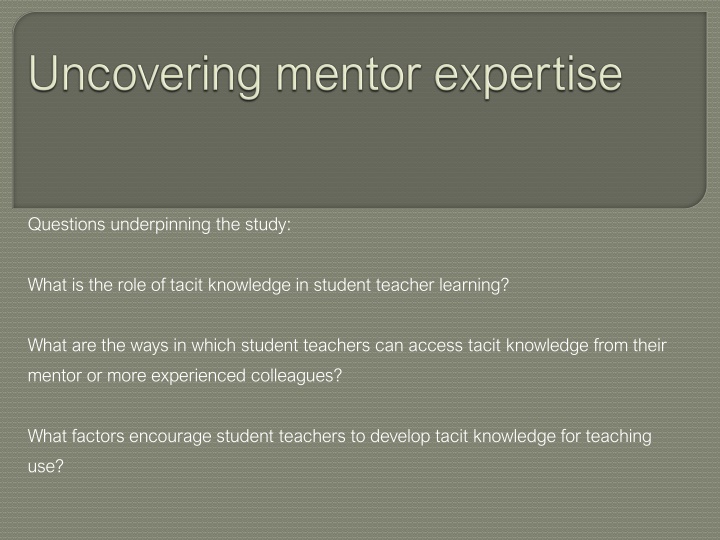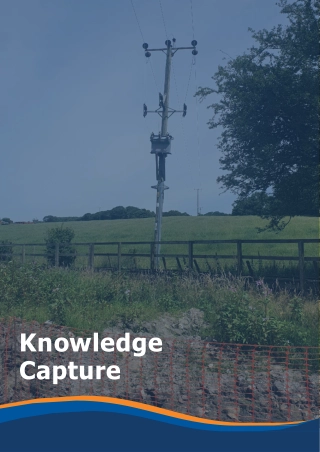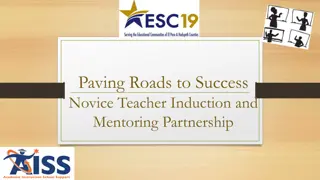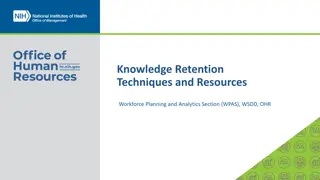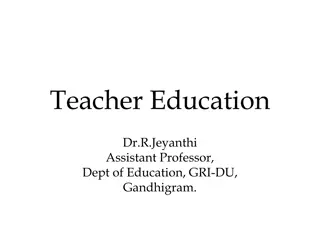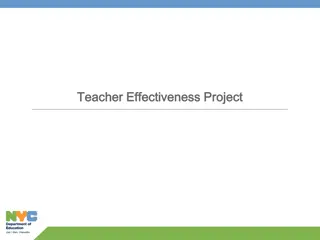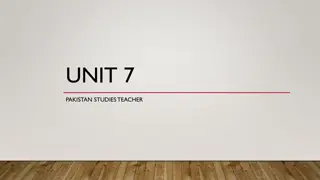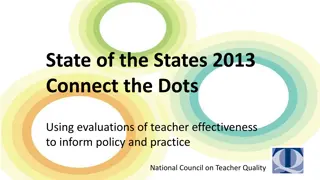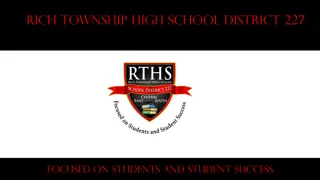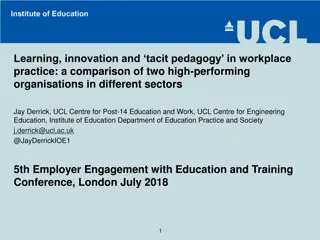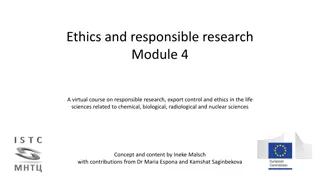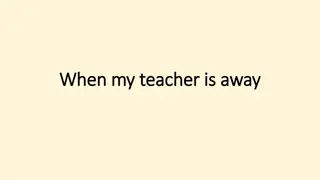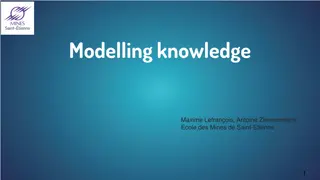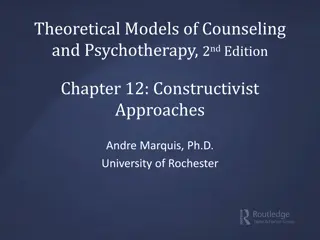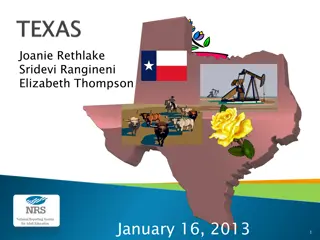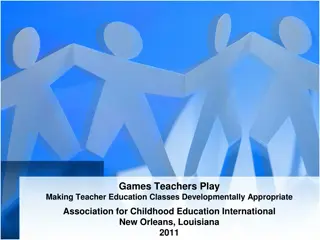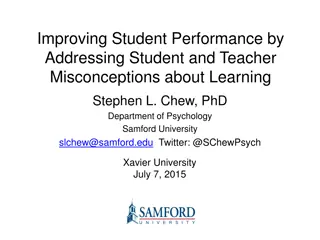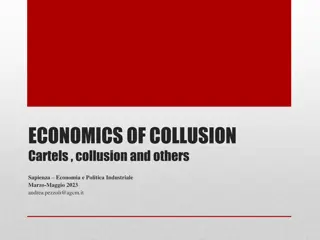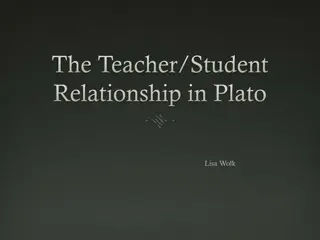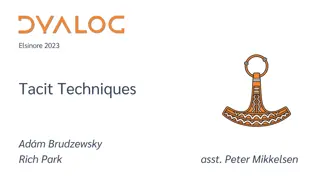Role of Tacit Knowledge in Student Teacher Learning
The study explores how student teachers can access tacit knowledge from mentors, factors encouraging tacit knowledge development, and the importance of mentoring in teaching. It delves into the significance of tacit knowledge in teacher practices, drawing on research and case studies.
Uploaded on Apr 12, 2025 | 0 Views
Download Presentation

Please find below an Image/Link to download the presentation.
The content on the website is provided AS IS for your information and personal use only. It may not be sold, licensed, or shared on other websites without obtaining consent from the author.If you encounter any issues during the download, it is possible that the publisher has removed the file from their server.
You are allowed to download the files provided on this website for personal or commercial use, subject to the condition that they are used lawfully. All files are the property of their respective owners.
The content on the website is provided AS IS for your information and personal use only. It may not be sold, licensed, or shared on other websites without obtaining consent from the author.
E N D
Presentation Transcript
Questions underpinning the study: What is the role of tacit knowledge in student teacher learning? What are the ways in which student teachers can access tacit knowledge from their mentor or more experienced colleagues? What factors encourage student teachers to develop tacit knowledge for teaching use?
A focus on student teachers and mentors: My professional interest and experience The importance and influence of mentoring within the context of learning to teach are widely agreed upon. Experienced teachers in school contexts can play a vital role in enabling STs to: 1.put theory into practice; 2.develop an intelligent understanding of pupils and the factors which affect them; 3. make the link between teaching and learning; and 4. to build competent and evidence-based practice which can be critically reflected upon (Hobson, 2002; Burn, 2006; Jones and Straker, 2006; Aderibigbe, 2013; Winch et al., 2013). Student teachers found mentoring relationships to be the key aspect of school based practice. (Hobson, 2002: 5) Research into how STs learn from their mentors and what they are learning is relevant and important. My research acknowledges the vital role of the mentor in STs school-based learning and seeks to investigate if/how access to mentors TK can support the development of STs professional practice.
We know more than we can tell A quote from Michael Polanyi (1966: 4) which begins to define the meaning of tacit knowledge. Since Polanyi s work there has been further research into tacit knowledge Fenstermacher: 1994, Toom: 2012, Eraut: 2000, 2004 and 2007 Sometimes referred to as personal knowledge or sub-conscious knowledge Defined as the cognitive resource which a person brings to a situation that enables them think and perform (Eraut, 2000:114)
Teachers need to be able to respond to complex, context specific situations and they utilise personal knowledge to inform this (Westera, 2001) Teachers have complex, usually tacit, knowledge that informs and is embedded in their sophisticated and everyday practice (Burn et al., 2007: 430)
Case study approach Focus group- initial study Questionnaires online Interviews semi structured (4) Interviews provide main data source. These were stimulated recall interviews post lesson observation (Ethel and McMeniman, 2000) STIMULATED RECALL INTERVIEWS involved the mentor teaching and the ST observing. The ST noted specific teaching episodes s/he wanted to know more about . After the lesson the mentor was interviewed by the ST and asked to reveal what s/he was thinking at the time of the teaching events to provide further reasoning for the teaching actions Researcher not present Audio recorded & transcribed Thematic analysis used
Focus group STs gave a strong indication that accessing their mentor s TK was useful: It s just having that experience created over years to realise what works when and what doesn t and with which classes...that s kind of really behind the scenes but it s really helpful to know that. STs could also describe ways of accessing their mentor s teaching knowledge: Just chatting to them, whether it be in mentor meetings...or after a lesson. {...} At the end she ll be, did you notice I did this . We usually chat for another hour after the lesson about everything she did and why. STs pointed to observation as a learning method positioned later in the course: -At the beginning of the course when I was doing loads of observations I was just getting a bit frustrated thinking I m always doing this, sitting here, watching, getting a bit boring. And now I don t really do any observation . Having observations now I think would be really useful to access some more of that stuff (referring to TK), cos you know a bit for yourself and watching more experienced teachers, you d get more out of it now you know you ve got a level of understanding.
Interviews Stimulated recall interviews proved successful in allowing STs to access tacit knowledge from their mentors, For example: Links between Claire s (mentor) teaching actions and intended or actual outcomes were made explicit and clear. During the interview Will (ST) asked questions such as why do you... and how do you get pupils to... . Will: So I noticed that when you were giving those warnings you maybe change your voice. Why? Claire: You tend to go deeper. So if you're just talking in general I find I might have a bit of a softer voice or more of a projected voice if I wanted to give them instructions. Then if I'm not happy with the noise levels, the voice deepens a little bit, even though it's hard to note my voice deepening. But the tone changes and it becomes more assertive and slower [...] It's like saying without actually having to say I'm not happy.
ST: At one point Ed was shouting comments, but did you choose to ignore it on purpose? Mentor: It's not done for time reasons. It s because of Ed as - that sort of student he seeks attention for a lot of the lessons. So I purposely choose to ignore him, because if I give him this sort of attention then it very quickly can escalate into a loss of time as he will try and have a classroom argument or have a discussion or try and find a way to get other people involved to try and kill time or get my attention. ST: You gave Jake a warning. Was it, - why was it particularly at that point maybe rather than earlier on or did you put off before that when he was shouting stuff out. Mentor: Yeah, I may have put off a few of his shouting[s] out, but at the same time I think at first it was quite low level and it wasn't as majorly disruptive at that point. I felt like it was beginning to escalate further, not just from Jake but from everybody else. So, in a slightly unfair way, I've used him as that benchmark. These are examples of mentors justifying their actions, leaning on the tacit knowledge they were using at the time of teaching. This helped to clarify sometimes ambiguous teaching episodes for the STs.
Interview quote. (lines 140-168) Claire s TK indicated Will (student teacher): I just wondered how [to] make sure that they all [understand homework] - because you can't go around to every pupil saying did you get the homework, have you got it written in? Claire (mentor):So you get them to take their planners out and you can do a Direct instruction needed. Check quick scan of the classroom and see that they've all got their planners out and the instruction has been followed they're all writing in there. Then give a chance of - does anyone need help writing them in? Especially Year Be prepared to support 7, I wrote it in for one of my other pupils that I teach in a different class because he has trouble writing in the instructions because he has trouble writing. It's knowing your pupils really, which ones are going to find it difficult and which Using previous knowledge of ones are going to write it in no problem. individuals It is difficult because at the end you go along with the lesson and you sort of It is important to consider the think it's all going fine, you don't really want to stop just to write in the timing of setting homework homework so you might leave it a little bit and then you realise you're out of time. Table showing dialogue between Will and Claire illustrating TK being revealed on the issue of homework.
Student teachers found the process of observing and then being the lead in questioning afterwards empowering and enabled them to ask about issues that mattered to them. The stimulated recall interviews encouraged very specific teaching events to be examined afterwards and the mentor s tacit teaching knowledge was revealing for STs. This reduced generalised comments regarding large sections of the lesson The observation and interview process was a way of learning for STs which did not involve judgemental feedback (raised as demotivational by Hobson et al., 2006) STs taking the lead in the interviewing allowed the issues that mattered to them to be discussed. These were sometimes issues that may have otherwise been taken for granted or overlooked as obvious by mentors (due to their experience).
You may find it beneficial to observe and interview your mentor, or another class teacher, in order to uncover their experiential knowledge This could be for any class and could be followed up with a 5 -50 minute interview (whatever is possible) Points to remember.. 1. Take a few notes during the observed lesson to support your questioning afterwards. Focus on specific events (moments) 2. You could have a particular focus (e.g. an area of teaching you are struggling with or want to know more about) 3. Avoid questions which imply judgement about the observed teaching focus on uncovering what your mentor was thinking at time of action
Burn, K. et al (2007). The potential and challenges for student teachers learning of subject- specific pedagogical knowledge within secondary school subject department. The Curriculum Journal, Vol. 18, (4), 429 445. Eraut, M. (2000). Non-formal learning and tacit knowledge in professional work . British Journal of Educational Psychology. Vol. 70, 113-136. Eraut, M. (2004). Informal learning in the workplace , Studies in Continuing Education. Vol. 26 (2), 247-273. Eraut, M. (2007). Learning from other people in the workplace , Oxford Review of Education. Vol. 33 (4), 403-422. Fenstermacher, G. (1994). The Knower and the Known: The Nature of Knowledge in Research on Teaching , Review of Research in Education, Vol. 20, 3-56 Hagger, H. And McIntyre, D. (2006) Learning teaching from teachers. Open University Press. Hobson, A. (2002). Student Teachers' Perceptions of School based Mentoring in Initial Teacher Training (ITT) ,Mentoring & Tutoring: Partnership in Learning, Vol.10 (1), 5-20 Jones, M. And Straker, K. (2006). What informs mentors practice when working with trainees and newly qualified teachers? An investigation into mentors professional knowledge base . Journal of Education for Teaching: International research and pedagogy. Vol. 32 (2), 165-184 Polanyi, M. (1958). Personal Knowledge , London, Routledge. Toom, A. (2006). Tacit Pedagogical Knowing: At the core of teachers professionality. Research report, Faculty of Behavioural Sciences, University of Helsinki. Westera, W. (2001). Competences in education: a confusion of tongues. Journal of Curriculum Studies. Vol. 33 (1), 75-88.
